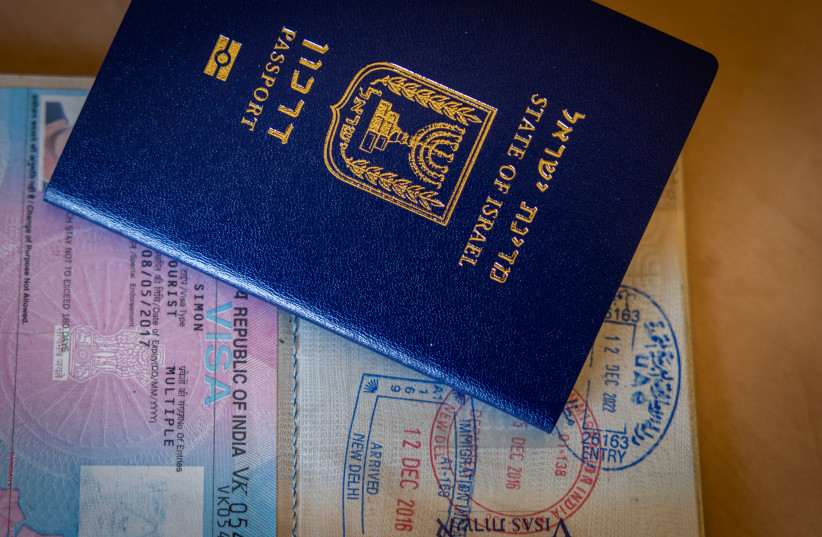Multiple offices will be converted to biometric passport application centers nationwide to address the ongoing passport renewal backlog crisis, Interior Minister Moshe Arbel said on Monday in a presentation of his plan to solve the problem.
On May 14, the largest Interior Ministry offices in Jerusalem, Haifa, Tel Aviv and Beersheba will be dedicated for biometric documents with extended work hours, from 7:30 a.m. until 10 p.m., five days a week. Other biometric documents would be obtainable at the offices, but other items such as birth certificates wouldn’t be offered at these sites for a month. These operations will continue until June 15.
A new passport office will be opened on May 15 in Bnei Brak, and will continue operations indefinitely. The office is set to be open from 2-10 p.m.
To grapple with the reprioritized services, the Interior Ministry’s workforce will be expanded, and the minister will extend 11,000 foreign visas to free up existing manpower. Interior Ministry official Eyal Siso said the ministry’s employees have been busy with additional duties besides the passport problem, which had greatly burdened them and demanded late work hours. He thanked them and asked the public to be patient with them.
Citizens were requested to sign up for an appointment ahead of time and to prepare for long wait times and lines. Those who did not need to immediately renew their passports were asked to wait for those who had expired or almost out-of-date travel documents. A wave of people was expected to arrive at the centers throughout the month.

Appointments would not be necessary, but those who scheduled ahead of time would be prioritized. Appointments could be scheduled online, and could receive updates on the ministry website and by SMS. The ministry also asked applicants to pay for the passports online.
“The crisis is at the top of the ministry’s priorities,” said Arbel. “We all want to solve the crisis as soon as possible.”
The interior minister said the renewal backlog would not be instantly resolved by the program, which would require a holistic approach, but the plan presented on Monday would alleviate much of the pressure on the system and meet much of the public’s demands.
The ministry hoped that by summer Israelis would have their new passports.
“Israeli citizens have the right to a vacation and to have a passport so they can fly when they want, and don’t need to wait a long time to receive something basic,” said Siso. “We want to give Israeli citizens the service they deserve.”
Arbel said a backlog had been created by the pandemic and the new biometric requirements, which created a bottleneck in services. Arbel said this wasn’t a criticism of the previous government. Siso said there was another two years of work to be done to fully implement biometric passports.
“We need to work harder on the biometric [ID],” said Arbel, noting that some countries would likely soon only accept biometric passports. “The time for a change has come. “
Arbel said some people had been using bots to secure themselves appointments during the passport backlog, which he warned was unsafe because of the handling of sensitive personal information.
